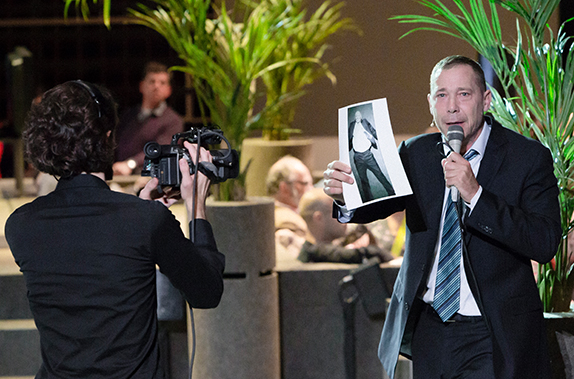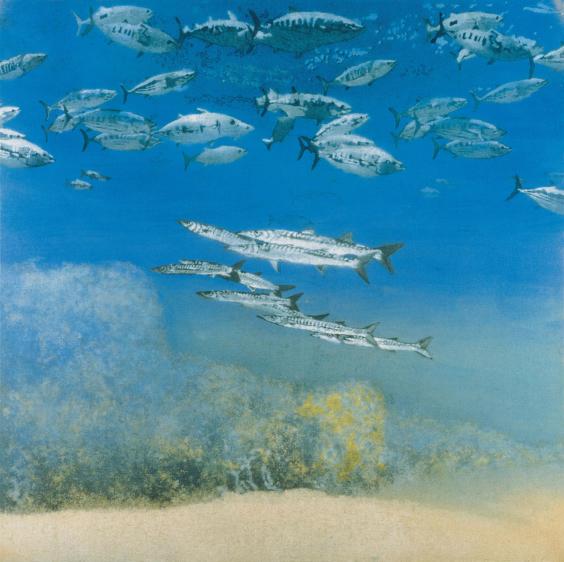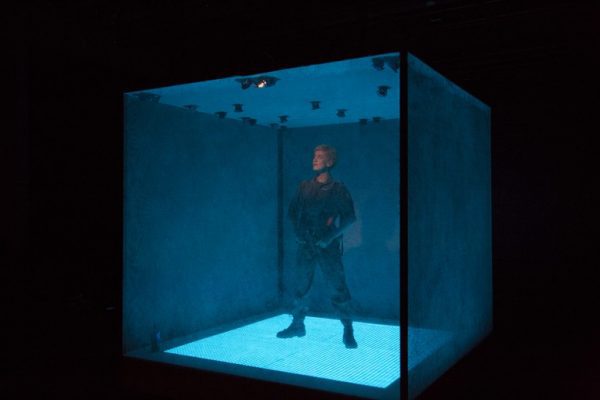So here is a brief list of what is on in London or coming up … and is of interest to me and maybe to you
Theatre
This is just an update of the following post … with a few new ideas that have cropped up recently
Some forthcoming theatre ideas
Current best picks – what’s on and booking
- Obsession – Barbican – booking and opening shortly – should be a cracker based on Toneelgroep Amsterdam’s track record
- INK – Almeida – booking now
- Against – Almeida – booking from May
- Othello – Wilton’s Music Hall – booking now
- Who’s Afraid of Virginia Woolf – Harold Pinter Theatre – on now – reviews say it is unmissable but fancy West End prices have to be stomached
National Theatre
These I have already mentioned …
- Follies – Summer 2017
- Network – Nov 2017
- Mosquitoes – July 2017
- Macbeth – not until Spring 2018
- Amadeus is coming back in 2018
These are the newly announced
- Beginning – Oct 2017 – new romantic comedy by David Eldridge – “the morning after a party two couples…blah blah … changes their lives etc” – I don’t know his work but it is directed by Polly Findlay who is terrific director – the words romantic and comedy should normally give cause for concern but the NT has backed this writer before so I think worth a punt though don’t think it will fly off the shelf
- The Great Wave – Spring 2018 – set in Japan and Korea – that’s all there is on the website but co-production with Tricycle Theatre in Kilburn (which is tip top and currently being refurbished) and directed by Indhu Rubasingham who is the director of the Tricycle
On now or booking … I thave alked about these before
- Twelfth Night – I haven’t seen it yet shortly but reviews are great
- Angels in America – sold out – decide if you want to see it in the cinema but I would understand if you don’t …
- Consent
- Salome
- Common
Barbican Theatres
Just saw Roman Tragedies by Toneelgrope Amsterdam – it was utterly brilliant – so when this bunch come back next year and put on a classic you should go – no excuses
Barbican will announce new season shortly which willI guess will include RSC transfers from Stratford of Titus Andronicus and the three Roman plays, Coriolanus, Julius Caesar and Antony and Cleopatra, that is the three plays that make up Roman Tragedies above – happy days ….
As a reminder this is the forthcoming list which I discussed in the previous post
- The Winters Tale – Cheek by Jowl production
- Obsession – this is the Toneelgrope Amsterdam production I am most interested in with that lovely Jude Law
- The Tempest –the RSC transfer
Young Vic
Nothing new to report so I still am most interested in the following
- Life of Galileo – Brecht classic
- Wings – Juliet Stevenson is the lead
- The Suppliant Women – transfer of classic Greek tragedy
Royal Court Theatre
Again no recent additions so more details in previous post
- The Ferryman – sold out but the West End transfer is still available
- The Kid Stays in the Picture – has opened but no reviews I can see yet yet
- Anatomy of a Suicide
- Road
- Killology
- Bodies
- Victory Condition
Almeida Theatre
So a re-cap first about Against as I think this will be a rapid seller and it will pay to get in early I reckon
The new play by Christopher Shinn (Other People, Dying City, Now or Later, Teddy Ferrara) who is a massive luvvies favourite has been announced – it is called Against and will be directed by Ian Rickson and will have the lovely Ben Wishaw in the lead – if you have never seen Wishaw on stage then with all due respect you are a numpty – he is brilliant though I have a crush on him I admit – anyway here’s the blurb from the website
Silicon Valley. The future. A rocket launches.
Luke is an aerospace billionaire who can talk to anyone. But God is talking to him. He sets out to change the world. Only violence stands in his way.
Now to me that sound bloody fantastic so I will stab a guess this will sell fast – booking opens in May for performances in second half August and through Sep – so let me know I interested and I will get some dates planned – I am a member so happy to book for you
The Hamlet with Andrew Scott (Moriarty in Sherlock) is just brilliant – certainly the best Hamlet I have seen and up there with the best Shakespeare – but I can’t see a cinema performance yet
I still highly recommend INK by James Graham who wrote This House, which is about Parliamentary politics in the 1970s and is a brilliant play – this new play is about Murdoch setting up The Sun and should be a very funny satire – directed by Rupert Goold
Donmar Warehouse
Limehouse and the The Resistible Rise of Arturo Ui both sold out – reviews for Limehouse are so-so
I will keep my eyes peeled for the new season when announced – they have a new ticketing system but this is usually a bun fight
Old Vic Theatre
Woyzeck, Girl from the North Country and Rosencrantz and Guildenstern are Dead – (where reviews are strong) all booking
Hampstead Theatre
Filthy Business (reviews are very good as might have been expected), Occupational Hazards, and Gloria – these are the main stage productions I have already covered – there are a couple in the downstairs stage but they don’t grab me
Fringe Theatres
A couple of new things at Southwark Playhouse, Lyric Hammersmith and Wilton’s Music Hall which I have highlighted
Orange Tree Theatre – The Lottery of Love and An Octeroon
Southwark Playhouse – The Cardinal and now The Island which is a modern classic by SA playwright Athol Fugard about two inmates on Robben Island where Mandela was imprisoned – you can do worse than a bench on a school night at Southwark Playhouse which is consistently good
Park Theatre, Finsbury Park –Madame Rubinstein, Twitstorm, A Clockwork Orange as before
Gate Theatre, Notting Hill – Grounded – I loved it but nearly over and not compulsory
Grounded at the Gate Theatre review ****
Finborough Theatre, Earls Court –You’re Human Like the Rest of Them and Incident at Vichy – both revivals of neglected or early works which is the theatre’s forte (as it is for the Orange Tree)
Arcola Theatre in Dalston – there is a Cherry Orchard by Chekhov coming up I am going to – initial reviews are mixed but the boy Chekhov normally rises above directors and performers to deliver a worthwhile couple of hours – the new season is open – Marlowe’s Tamburlaine by a British East Asian women’s company, a version of Camus’ The Plague and a Richard III with Greg Hicks, a veteran Shakespearean
“Outer” and Other Theatres
Rose Theatre Kingston – My Brilliant Friend Parts 1 and 2 – reviews in the sensible papers are good and I agree but not sure I would insist you schlep out this far if you are not a local
My Brilliant Friend at the Rose Theatre Kingston review ****
Lyric Hammersmith – can be relied upon for properly controversial revivals (and excellent stuff for kids) – City of Glass (based on the Paul Auster novels) looks interesting – the reviews from Manchester where it is currently playing suggest the staging is interesting even if the story is a bit slippery – adapted by Duncan MacMillan who has been involved one way or another in most of the innovative theatre in London over the last few years – maybe one for your correspondent alone – also coming up is Terror a German courtroom drama about a pilot’s decision to shoot down a hijacked plane where the audience gets to decide the outcome – and a new Seagull (adapted by a favourite playwright of mine Simon Stephens who adapted Curious Incident …) where Chekhov basically sets out all the themes/characters he would bang on about in later plays – yes there is a gun, lots of voddie, pompous schoolteacher, unrecognized writing genius, ageing but still sexy matriarch, shrewish wife, some serfs watching on – all in all I think these three plays all look interesting and the Lyric is very good value
Wilton’s Music Hall – A new shout here – the Othello coming up at Wilton’s Music Hall – for those who have never been the venue is a real treat – super shabby in a Victorian ghost story sort of way it is often used for period TV pieces – anyway this Othello comes from Bristol Tobacco Factory and has cracking reviews – again cheap as chips here if a bit uncomfortable
West End Theatres
Nothing new vs last time so just a recap
Philanthropist at the Trafalgar Studios
Apollo Theatre – Travesties – an awful lot to take in but well worth it if you put the effort in
Travesties at the Apollo Theatre review ****
Wyndhams Theatre – Don Juan in Soho
Harold Pinter Theatre – Who’s Afraid of Virginia Woolf – the reviews suggest this is a must see
Theatre Royal Haymarket – The Goat or Who is Sylvia
Duke of Yorks – The Glass Menagerie – seen it and loved it but it is very Tennessee Williams
Art Galleries and Museums
Don’t miss
- Cezanne Portraits at the National Portrait Gallery – from Oct 2017
- America After the Fall – Royal Academy – reviews outstanding
- Revolution: Russia Art 1917-1932 – I thoroughly enjoyed this and a great foil for the American one above
Same as for theatre above – just a checklist really
Tate Britain
- David Hockney – to 29th May
- Impressionists in London (from Nov 2017),
- Rachel Whiteread (from Sep 2017)
- Queer British Art
Tate Modern
- Robert Rauschenberg until 2nd April – have seen it and now know why the smart people bang on about him – he just seemed like an all round top optimistic bloke which came through in the art
- The Radical Eye photography until 7th May
- Wolfgang Tillmans – I saw this and liked it – a prolific photographer with all sorts of thought-provoking ideas – but not an essential unless you are in the Tate
- Coming up Alberto Giacometti, Modigliani and Red Star Over Russia
Victoria and Albert Museum
From May there is the Pink Floyd exhibition
National Gallery
- Reflections: Van Eyck and the Pre-Raphaelites from Oct
- Monochrome: Paintings in Black and White – from Oct
National Portrait Gallery
- Cezanne Portraits from Oct 2017 – compulsory
- Howard Hodgkin – about to open – UK’s greatest colourist and made more poignant by his very recent death
Royal Academy of Arts
Revolution: Russian Art 1917-1932 to 17th April – this was a real eye opener into Soviet Art for me and the relationship between State and artists and there was plenty of new stuff to get my teeth into – highly recommended
Russian Art at the Royal Academy review ****
America After the Fall – I recommend seeing both of these back to back ….
Other galleries
Other exhibitions that catch my eye
- John Latham at the Serpentine Gallery – so the daddy of British conceptual art – I went and it just bolstered my fascination but would not be offended if you though it was complete b*******s
- Whitechapel Gallery – Eduardo Paolozzi to 14th May
- Dulwich Picture Gallery – Vanessa Bell to 4th June
- The Japanese House at the Barbican from 23rd Mar
- At the British Museum is the American Dream exhibition of prints
- Robots exhibition at the Science Museum
Opera
I only deal with a bit of C20 opera (notably Britten), some contemporary opera, some Mozart and some Baroque … so basically most of the canon is off limits for me which is of precious little use to you I realise. Sorry.
Royal Opera House
The Exterminating Angel – Thomas Ades – this will be a fabulous score I am sure – based on the surrealist Bunuel film – this is seriously pretentious but I have very high hopes
Mitridate, re di Ponto – this was written by Mozart aged 15 – a classical theme so closer to Baroque structure than the mature operas – a revival which had top reviews previously -booking opens 28th Mar for us mortals
Elsewhere Hackney Empire puts on a lot of Baroque opera by English Touring Opera – I have seen some Monteverdi there which was jolly – I like the sound of the Julius Caesar by Handel in two parts in Oct – for those who like the noise Handel makes this should be a treat though Baroque opera often involves dodgy sets and “park and bark” singers who don’t do much acting so beware
Film
Loved Elle – I could watch Isabelle Huppert read the telephone directory (do they still exist) but this was perfect for her brand of hauteur and facial tics but be warned it is provocation after provocation to us liberal types like most of director Verhoeven’s stuff so read reviews carefully
On the to see list now is Lady Macbeth and that Personal Shopper as well as Get Out
The End










